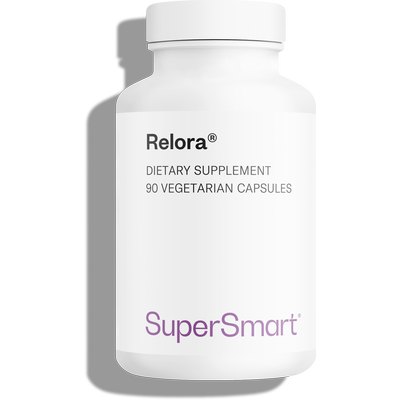06-09-2013
New study confirms efficacy of Relora® (combined extracts of Magnolia and Phellodendron) against stress
 Extracts of Magnolia officinalis and Phellodendron amurense have been part of the Chinese pharmacopaeia for almost 2000 years, prescribed for restoring emotional well-being due to their effects on the flow of Qi (pronounced “tchi”) or vital energy. In the case of “qi stagnation”, the body is unable to cope with stress or anxiety.
Extracts of Magnolia officinalis and Phellodendron amurense have been part of the Chinese pharmacopaeia for almost 2000 years, prescribed for restoring emotional well-being due to their effects on the flow of Qi (pronounced “tchi”) or vital energy. In the case of “qi stagnation”, the body is unable to cope with stress or anxiety.
Numerous studies have highlighted that the standardised combination of these two extracts, a proprietary complex marketed under the name Relora®, helps regulate levels of cortisol, a hormone produced by the adrenal glands, excessive blood levels of which are associated with greater sensitivity to stress and inability to relax and recover.
Its active ingredients, honokiol and berberine, have proved to be powerful “anti-anxiety” agents capable of reducing stress-related cravings and bulimic episodes.
According to a new double-blind study published in the Journal of the International Society of Sports Nutrition, supplementation with extracts of Magnolia officinalis and Phellodendron amurense for four weeks significantly reduced the harmful effects of stress. 35 men and 21 women were randomly assigned to either a placebo or 500mg of Relora® over a four-week period.
Results showed that, compared with the placebo group, the supplemented group had significantly lower saliva cortisol levels (-18%), their overall stress decreased by 11%, depression by 20%, anger by 42% and fatigue by 31%. Improvements were also observed in overall mood (+11%) and stamina (+18%).
These findings suggest that daily supplementation with extracts of Magnolia and Phellodendron bark (Relora ®) reduce exposure to stress hormones, particularly cortisol. By acting on various mood parameters and improving the body’s response to chronic stress, they therefore mitigate the latter’s detrimental effects on health.
This new study also offers new perspectives on supplementation for sports enthusiasts. Constant training and competition place additional stress on those who exercise more than the average. The researchers suggest that future studies should examine the potential benefits of such supplementation on performance and recovery in athletes suffering from the physical and psychological demands of training and competition, particularly since human studies confirming its efficacy have also confirmed its safety in long-term use and absence of side-effects.
Order the nutrient mentioned in this article
Further reading
01-11-2017
Progesterone plays an essential role at all stages of a woman’s life. Supplementing with natural progesterone - bioidentical to that produced by the body –...
Read more02-02-2015
L-tryptophan is one of eight essential amino acids in the human diet. It is the metabolic precursor of serotonin, melatonin and niacin. It was discovered...
Read more06-01-2017
Hypothyroidism or thyroid insufficiency particularly affects women, and incidence is known to increase with age. It is characterised by an inability to produce or release...
Read more© 1997-2026 Fondation pour le Libre Choix
All rights reserved
All rights reserved
Free
Thank you for visiting our site. Before you go
REGISTER WITHClub SuperSmart
And take advantage
of exclusive benefits:
of exclusive benefits:
- Free: our weekly science-based newsletter "Nutranews"
- Special offers for club members only


















